The HJC Bellus is a light neatly styled gravel helmet with an on-trend colour scheme. It features lots of adjustability plus HJC’s own unique SLID safety technology and the company's automatic self-adjusting tightening system which once placed on your head holds the helmet there without further winding of dials. Its smart internal design channels air very effectively across the top of your head. Read on to learn why its one of the best gravel bike helmets available right now.
- Best mountain bike helmets 2023 - top-rated head protection for the trail
- Troy Lee Designs Grail Helmet review
- Best gravel bike saddles 2023
HJC Bellus helmet - Technical details
HJC has been making bicycle helmets for over 20 years and motorcycle helmets for over 50 years and has its own in-house wind tunnel testing facility to aid its helmet designs both engine and human-powered.
The Bellus is HJC’s new road and gravel helmet, also think cross-country mountain biking and is the company's showcase helmet with its new SLID technology which stands for Sliding Layer Impact Distribution. SLID sits inside the top of the helmet on a plastic liner and works by allowing the GEL material inside the liner to flow and move allowing the head a degree of rotation inside the helmet upon impact and thus reducing the impact forces and energy transferred through to the brain.
HJC has also designed a multi-adjustment fit system for the Bellius helmet. Once you have chosen the closest corresponding size to your head size the ‘sprung’ loaded SELFIT automatic self-adjusting and the fitting system adjusts itself to your head switch enough force so that you can tip your head upside down and the helmet happily stays on your head. The SELFIT cradle also has five anchor points on either side of the temple area allowing you to fine-tune how much force you want the sprung system to exert on your head.
There is one further adjustment inside the helmet (we’ve not even got to the yokes or buckle yet) and that is the rear height adjuster which has seven positions so that you can choose how you want the helmet to fit on the rear of your head specifically where the cradle hugs your occipital lobe, I’m not aware of any other helmet with seven different positions and credit should most definitely be given to HJC for making the Bellus the most adjustable helmet I’ve tested. (Please let me know if there are others with this much adjustment in the comments)
So with all the SELFIT, temple anchor and height adjustments to play with it comes as a surprise to see that there are just simple ear strap yoke dividers that adjust easily and a standard buckle that clips normally under your chin.
We've requested more information from HJC as the website lacks any detailed testing information, so we have to take the SLID safety features at face value. As soon as we know more we will update this section.
The Bellus comes in a range of 3 colours (in the UK) including Matte Black and Matte White and this Matt Brown and Navy option. This Medium Helmet weighs in at 248g versus the claimed weight of 225 ± 10g.
HJC Bellus helmet - Performance
Straight out of the box, the Bellius looks good and feels pretty light in my hand although maybe not as light as my Lazer Genesis but very close to my Met Trenta Mips. Both are high-end road helmets that I have been using for ages on my gravel rides.
Without making any adjustments (or reading the manual) I put the helmet on my head where it felt immediately too tight. I looked for the rear wheel to undo the tension but there wasn’t one. I double-checked the size as it felt a little short but nope, I had the correct one.
As the SELFIT system was completely new to me so I had no idea how it worked. There was a little manual in the box, which of course I didn’t read initially, but had I done, I would have found it suggested adjusting the SELFIT temple mounting position to improve the fit which would have been sensible but, as I said I didn’t read it. I did adjust the simple rear height setting to find a more comfortable fit which clamped my forehead less and I did fit the supplied pad to the rear of the internal cradle which made that area feel much more comfortable against my neck.
So my first ride was with a non-fully adjusted box-fresh Bellus which I assumed would loosen up and to a certain extent it did. Several hours later I was surprised to find that I hadn’t thought about the fit once on the ride and when I took it off I didn’t have any ghastly indentations on my forehead. Maybe it wasn't that tight after all.
I left it like this for several rides until I realised I’d missed the five-position temple mount for the SELFIT cradle. Box Fresh, it is set on the one furthest from the rear of the helmet so I was getting the maximum pressure from the self-adjusting system. Moving the anchor point to the middle position made a huge improvement, I could still shake my head around and the helmet stayed on but it felt much more comfortable. Using it on this middle setting still provided enough grip on my head that I had no issue with the helmet moving around no matter what I did on the bike.
It is always like this with new products that look familiar, you need to check that you have followed all the adjustments and got the best setup before you use them. At least out of the box HJC has set the helmet for maximum hold so no one should have any mid-ride helmet movements in front of their eyes.
I have not tested the SLID impact system for you, but I have tested a few Mips systems over the years, so if it works like that I will be more than happy. To look at it’s much smaller than a Mips liner only covering the top part of your head with a fat star-shaped plastic insert housing two Gel pads labelled SLID. The SLID liner doesn’t appreciably shuffle like the Mips liner, being fixed to the inside of the in-mould construction and presumably only moving under impact forces.
With the helmet fitted correctly, the HJC is one of the most comfortable helmets I have tried in a long time. On my head, it sits pretty low on my brow giving good frontal coverage. How low it sits on you will depend on your head shape and the height adjuster at the rear but with seven positions, there’s every reason to believe you can find as good a fit as I did.
Being low I thought it might clash with my sunglasses but as neither the Koos or the Bellus seem to wobble at all on my head there is very little to no appreciable interference between them. Like all modern race helmets, the Bellus is happy to carry your glasses for you on days when the elements or the temps require you to put them somewhere. One day a helmet manufacturer will incorporate a proper clip to guarantee their security but until then the Bellus will hold your glasses in the air vents just like its brethren.
HJC makes a lot of the fact it has its own wind tunnel testing rig and, while I cannot test the aerodynamic performance gains of this helmet, I can attest to the design of the vents and the effectiveness of the COOLPATH air flow ducts at channelling air over your head as you ride. It works very effectively providing a clear flow of air or draft on these colder autumnal days and I can tell it’s going to be very effective in the summer allowing cooling air to flow over your head on hot days.
Aesthetically, this helmet is quite different in style from either the narrow MET Trenta 3K Mips or the sculptured brow of Lazer Z1 Mips that have been my preferred gravel helmets over the last few years. HJC has given the Bellus a modern contemporary look with a wide low brow and horizontal cooling vents just above the brow to aid the airflow. This two-tone, Brown and Blue colourway, I think it is extremely smart and will match with a lot of clothing brands' colourways at the moment. It's a helmet for now in this colour. The company also offer Black or White in the UK.
HJC Bellus helmet - Value and verdict
Let’s get the usual concern over with – yes, £180 is a lot of money to pay for a cycle helmet, but I would always suggest you spend as much as you can afford on a helmet and buy one that you like to wear and think looks good. That way you will wear it more often which is the idea.
Back to the money, yes you can spend a lot less and yes you can spend a bit more, well a lot more actually. The two helmets I have mentioned a couple of times in this review are both ideal gravel helmets being top-class road helmets and, what is the difference, I'm not sure that has been defined yet. Only Troy Lee Designs is offering us an aggressive gravel helmet at the moment, the £100 Grail helmet but, to my eyes, it has challenging looks and cooling issues, so I’m not going to count that as an option. You might disagree.
Lazer’s £190 Z1 and £220 Genesis are both Mips helmets – the latter being worn by Tom Pidcock to XCO Mountain Bike Olympic Gold weighing in at 258g and 235g respectively and are both excellent gravel, cross-country and, of course, road helmets. The £220 MET Trenta Mips weighs in at 226g (and is worn by a certain Tadej Pogačar, two-time winner of the Tour de France) but is marketed as a gravel helmet and has protected my head twice in recent years from unplanned gravel crashes (replaced each time) so I’m quite fond of its Mips system and the airflow it delivers. But, and this is a big statement, I like the HJC. The level of adjustment, airflow, and styling all deliver a great helmet at a competitive 248g that undercuts the MET Trenta.
I’d like more information on the SLID system how it works and how the protection it delivers compares to Mips for the same impacts. As I mentioned earlier, as soon as we know more I’ll update this review.
For now, HJC’s Bellus is a very adjustable helmet with its self-fitting system and excellent airflow at a competitive price and weight in the gravel cross-over market. Its design is unique and the level finish is excellent. The incorporation of HJC’s proprietary SLID technology offers a viable alternative to Mips, on paper at least, which we look forward to being able to back up with some more data. As it stands it’s an excellent, super comfortable helmet which I’m happy to recommend.











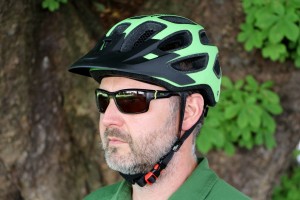
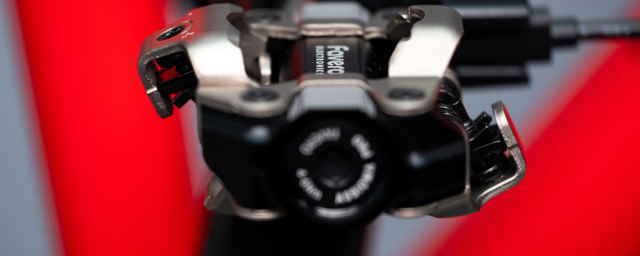
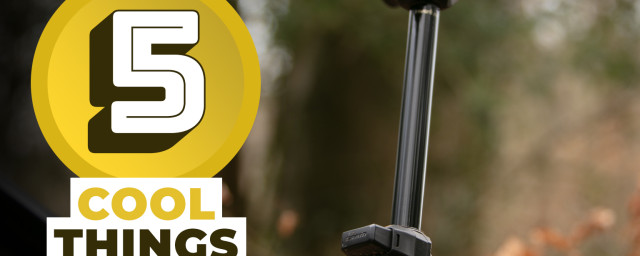


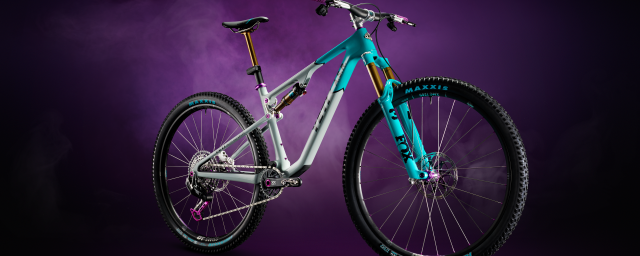
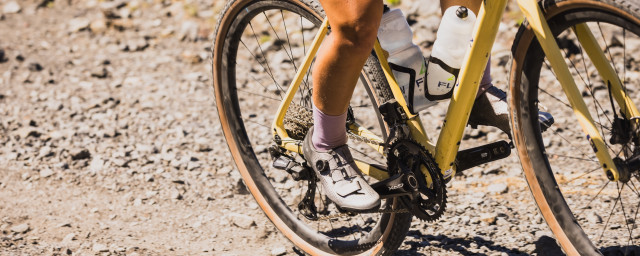
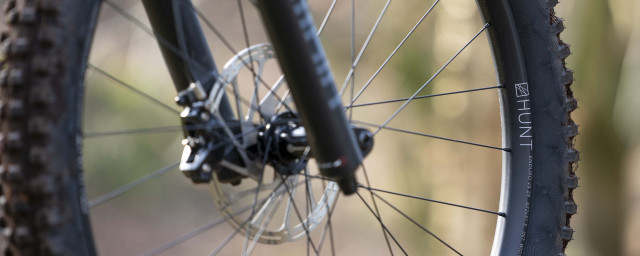

1 comments
It might be expensive, but it looks cheap with all that exposed polystyrene, like one of those 1980s Snell-rated helmets.